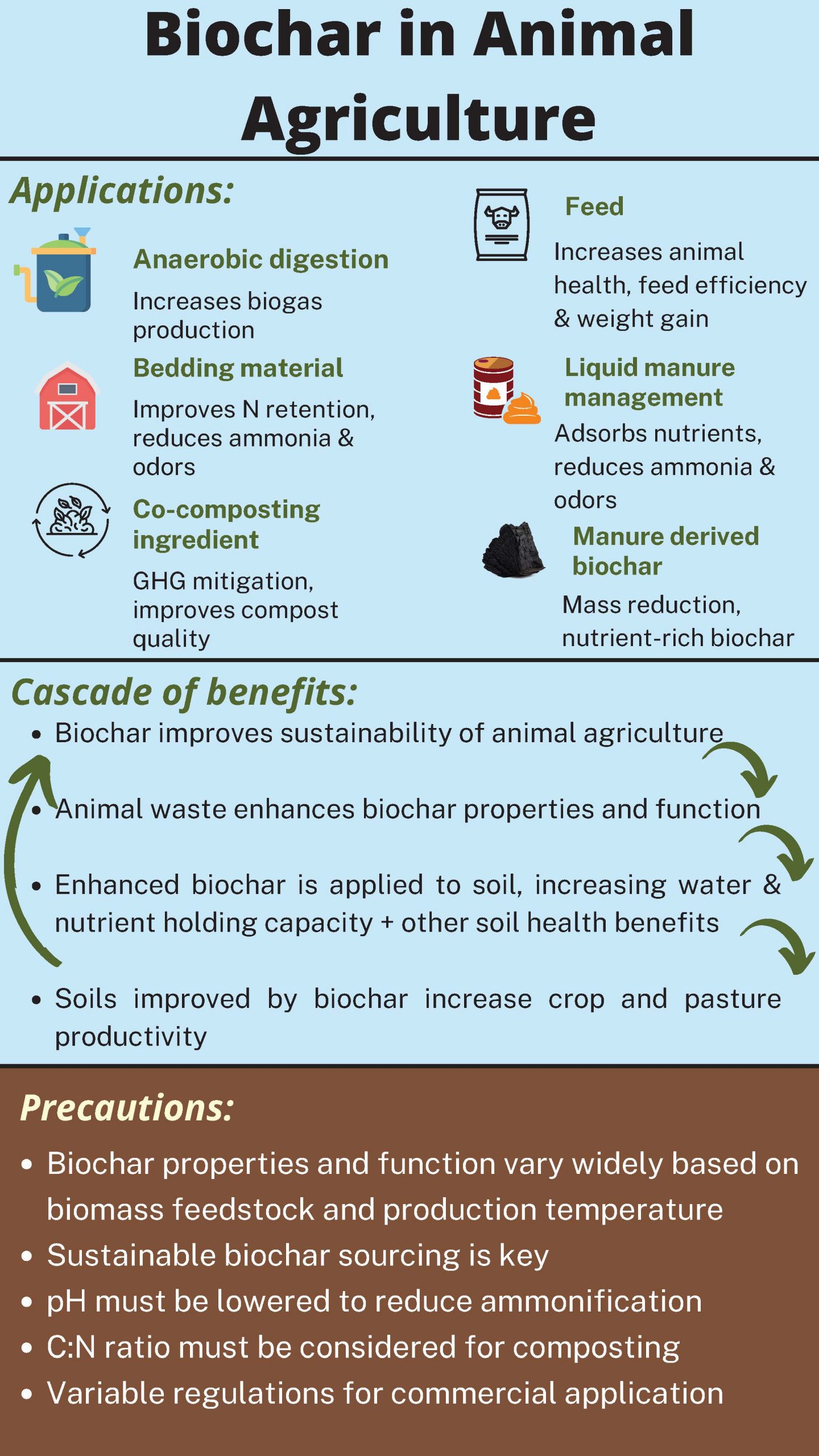Biochar in Animal Agriculture: The Potential for Cascading Benefits and Resource Circularity
Jack Edgar, MLWS 2022
Agriculture is both a major contributor to climate change and one of the most vulnerable industries to its effects (Blandford and Hassapoyannes, 2018; Lipper et al., 2014). Agriculture, forestry, and land use change are estimated to account for 24% of global GHG emissions (IPCC, 2014). Emissions from animal agriculture are particularly high, contributing 16.5% to global GHG emissions (i.e., 69% of the total agricultural sector) (Twine, 2021). Meanwhile, farmers are inextricably affected by extreme weather events that are exacerbated by the changing climate. To mitigate the GHG emissions contributing to climate change and increase resilience to extreme weather events, farmers and ranchers must adopt climate-smart practices. One versatile tool for mitigating and adapting to climate change is biochar.
Biochar is charcoal which is used as a soil amendment or for other environmental management purposes (Lehmann and Joseph, 2015). Its main agricultural benefits include increasing soil water and nutrient holding capacity, remediating contaminants, reducing GHGs and improving soil structure. The organic carbon formed in biochar is highly resistant to decay, lasting for hundreds to thousands of years; thus, producing biochar is a potential method of carbon sequestration (Lehmann and Joseph, 2015).
In addition to its use as a soil amendment, integrating biochar into animal agriculture systems has demonstrated several benefits (Graves et al., 2022, Schmidt et al., 2019). Biochar can be integrated into animal agriculture through feeding, bedding, composting, anaerobic digestion, manure slurries and producing biochar with manure. Through these applications, biochar can reduce ammonia, GHGs, and odors while also improving animal health, production efficiencies, and resource circularity. Incorporating biochar into animal agriculture also increases the quality of biochar by inoculating the surfaces and pores with nutrients and microbes (Joseph et al., 2015; Mia et al., 2017). These improved biochars can then be applied to agricultural soils, improving soil health and climate resilience.
